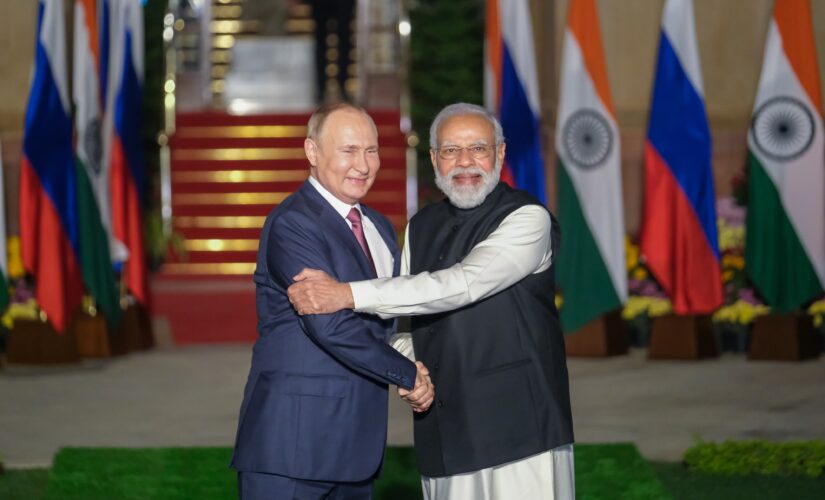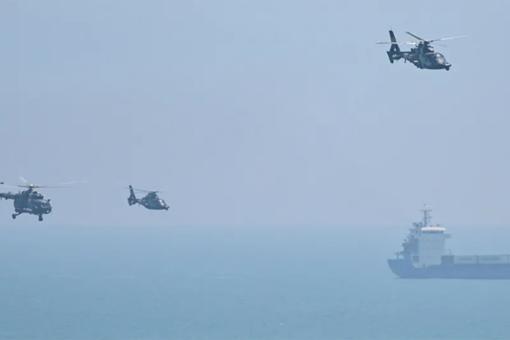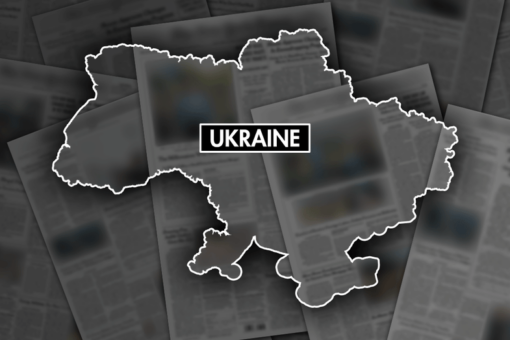NEWYou can now listen to Fox News articles!
India’s apparent developing relationship with Russia is one of economic opportunity, not one of strategic alignment, according to economic and defense experts.
“I don’t think they’re looking to help Russia execute its campaign in Ukraine,” Jeff Smith, research fellow at the Heritage Foundation, told Fox News Digital. “What they might be interested in is getting discounted oil from Russia at a time when inflation is running high – I think they likely will pursue opportunities to do that.”
India initially remained quiet on Russia’s actions in Ukraine, even abstaining from the vote to condemn Russia’s actions, but recently condemned Russia’s actions in Bucha and called for an investigation into possible war crimes in Ukraine.
RUSSIA INVADES UKRAINE: LIVE UPDATES
U.S. officials voiced concern that India and China have seemingly provided Moscow with backdoor relief from severe economic sanctions – such as through the purchase of 40 million tons of Russian coal in Oct. 2021 and the purchase of 12 million barrels of crude oil from Russia throughout the year.
But any business between Delhi and Moscow is born out of Russia’s vulnerability and the chance for India to profit off cheaper energy – a necessity for a nation that still ranks as a developing industrial power.
“I think in the past, India has done a pretty good job making sure it’s not in violation of any direct U.S. sanctions, and I suspect they’ll continue doing the same now,” Smith said, noting that Russia accounts for only about 2% of India’s energy imports. “They exported $3.3 billion of goods to Russia in 2021; they exported $71 billion to us.”
Russia has managed to stabilize the ruble after a severe initial shock from sanctions, but it faces difficulty conducting business with foreign partners who have contracts to buy oil and gas with at least some portion of dollars after the U.S. froze any such assets. India, therefore, has jumped at a chance to buy oil at a cheaper cost via some creative rupee-ruble exchange mechanisms.
ZELENSKYY CALLS FOR MORE SANCTIONS AS UK’S BORIS JOHNSON MAKES SURPRISE KYIV VISIT
But the U.S. has spent considerable time developing a relationship with India that neither nation would want to jeopardize.
India’s robust naval forces and natural opposition to China’s regional ambitions – which has occasionally boiled over into brief border skirmishes in recent years – has positioned India as a vital partner for the U.S. in the region.
“Notwithstanding this current back and forth with respect to Ukraine and Russia and India’s position, I do think there is a strong, correct view that India is part of the strategic equation with respect to our aims in the Indo-Pacific region,” James Anderson, former undersecretary of defense for policy during the Trump administration, told Fox News Digital.
RUSSIAN TROOPS DUG TRENCHES IN CHERNOBYL’S HIGHLY RADIOACTIVE ‘RED FOREST’
Anderson explained that since President George W. Bush’s administration the U.S. has worked to improve ties with Delhi and develop a significant strategic partnership. India’s capabilities can put China off-balance in any potential conflict in the region, which is to the U.S.’s advantage.
“I think it’s something that needs to be promoted at all levels – diplomatic, economic, as well as military assistance,” Anderson stressed. “They are a natural partner to the United States…we’ve been working very hard through several administrations to ween them off their dependence on Russian weapons systems, and that’s a lot easier said than done, but there’s been progress made in that regard.”
CLICK HERE TO GET THE FOX NEWS APP
“That effort to promote that strategic partnership…there’s some twists and turns in there, but the overall trajectory is pretty good,” he added. “But it’s not something that can be forced, and we cannot expect India to support us 100% – they’re their own country, they’re going to make their own decisions, and that explains in part their behavior with respect to Russia.”




